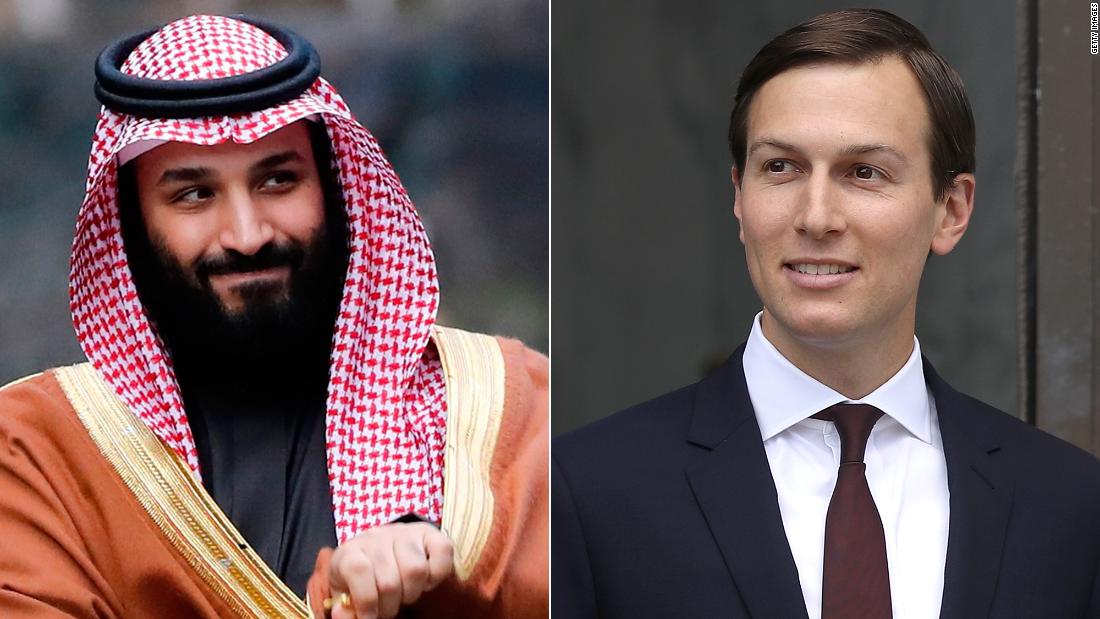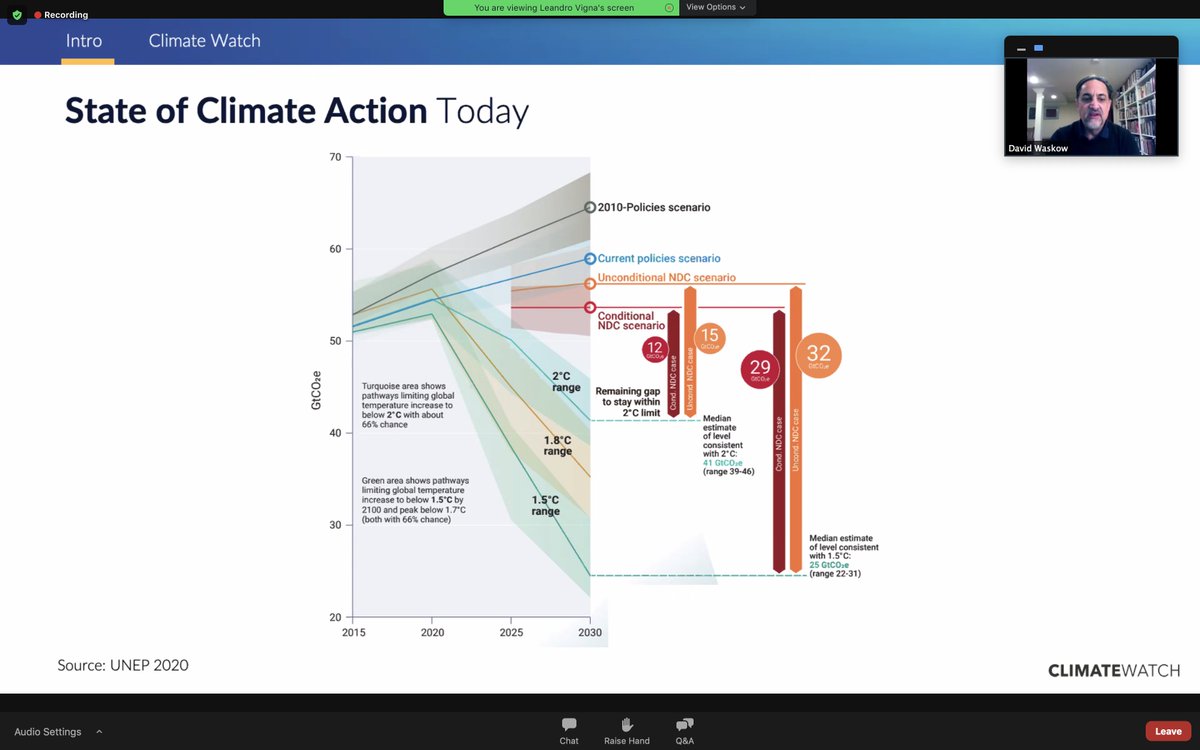
Webinar on tools for assessing national #climate pledges (NDCs) by @WRIClimate. @davidwaskow reminds: #ParisAgreement is meant to work thru an iterative process of increasing ambition (faster emission reductions), leading to #netzero emissions by 2050. (Thread 1/n)
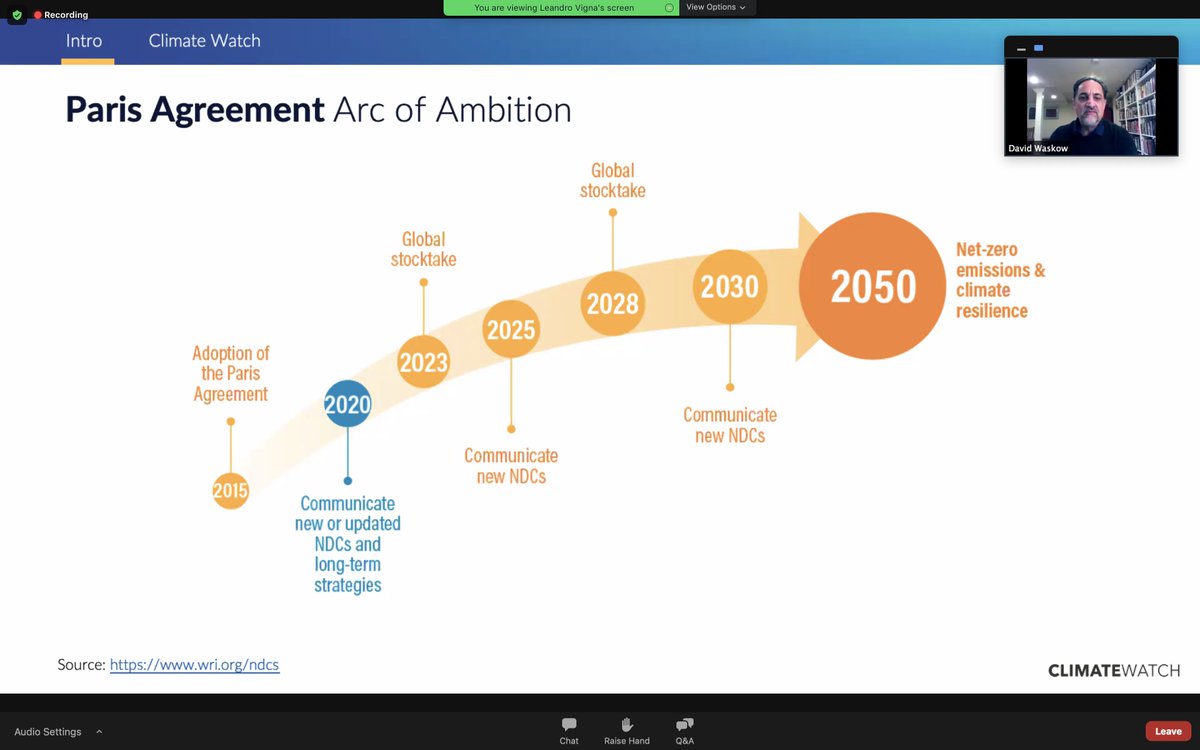

2 are on track (e.g., crop yields)
13 right direction but too slow (e.g., need electric vehicle sales to be 22x faster than now)
2 in wrong direction: forests, ag emissions
@davidwaskow from @climateactiontr, @WRIClimate et al 3/n
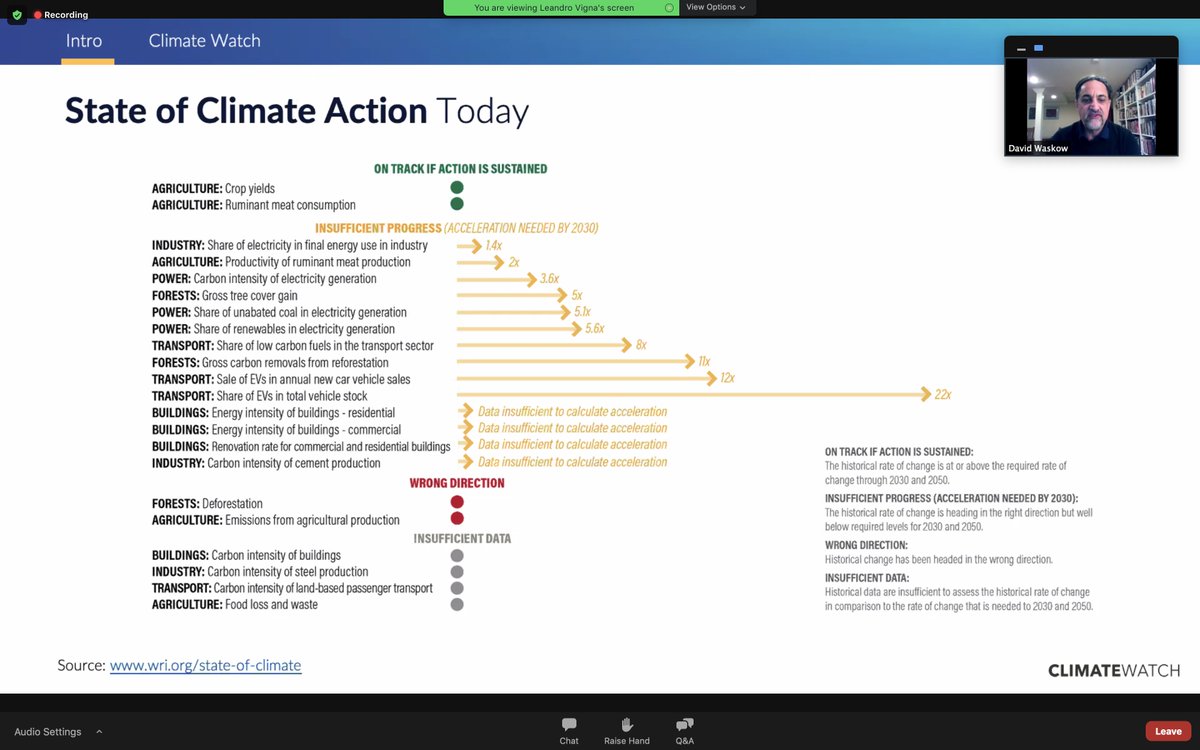
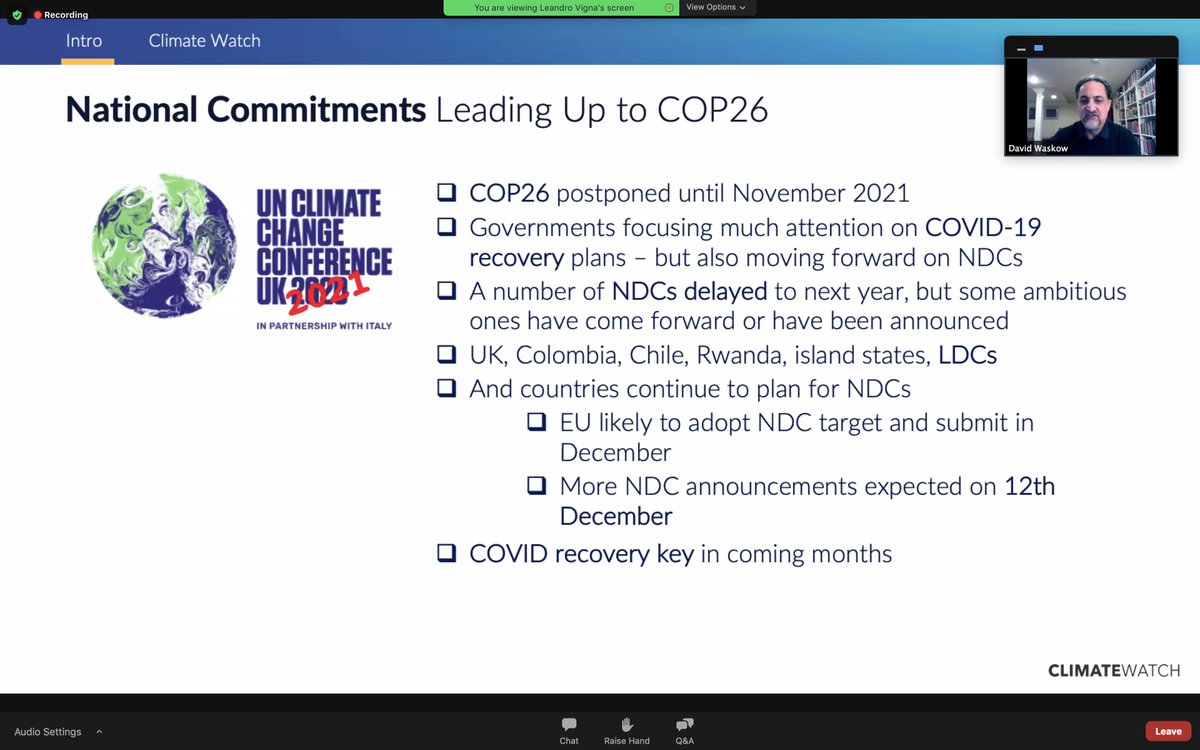
100s of credible datasets,
100,000s of data points
to assess #climate trends, targets, bring transparency to inform + drive #ClimateAction.
For govts, biz, researchers, NGOs
Run by @JohannesFried.
(See also other forest, energy, ... tools) 5/n

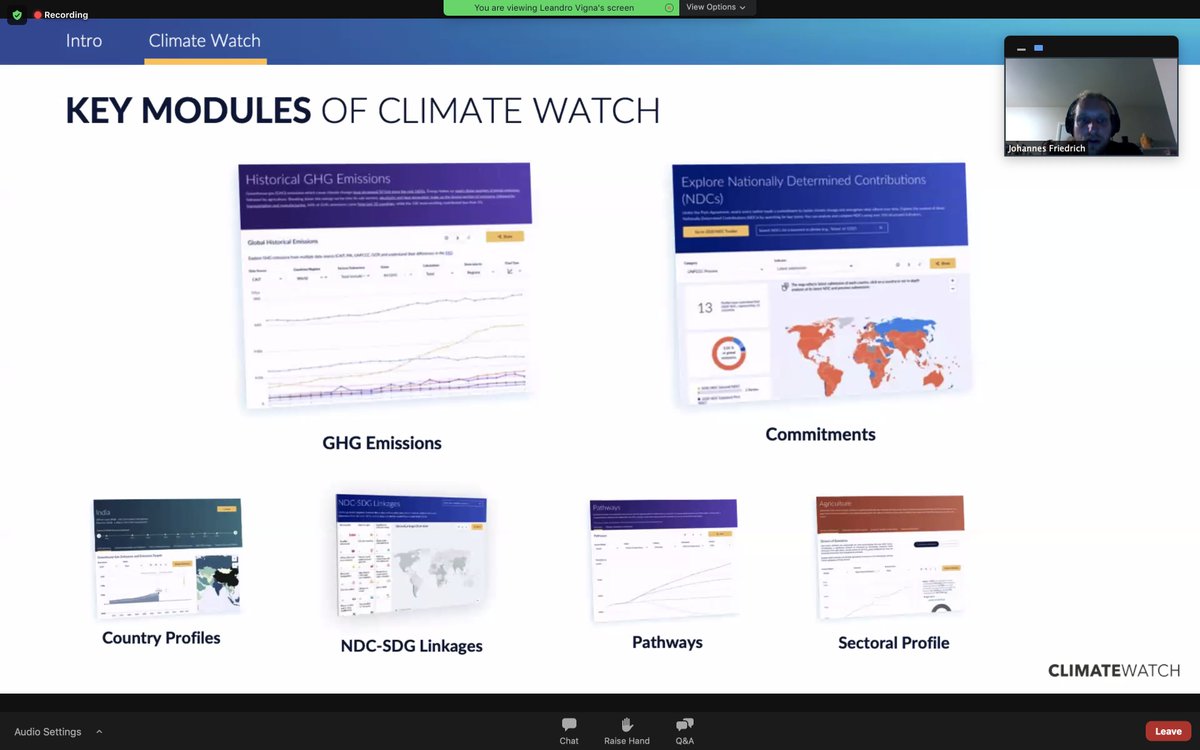
Only 20 countries have long-term #climate strategies
Only 20 have submitted updated, more ambitious pledges (NDCs)
26 have net zero targets
62 have economy wide #climate policy
@MengpinGe (7/n)
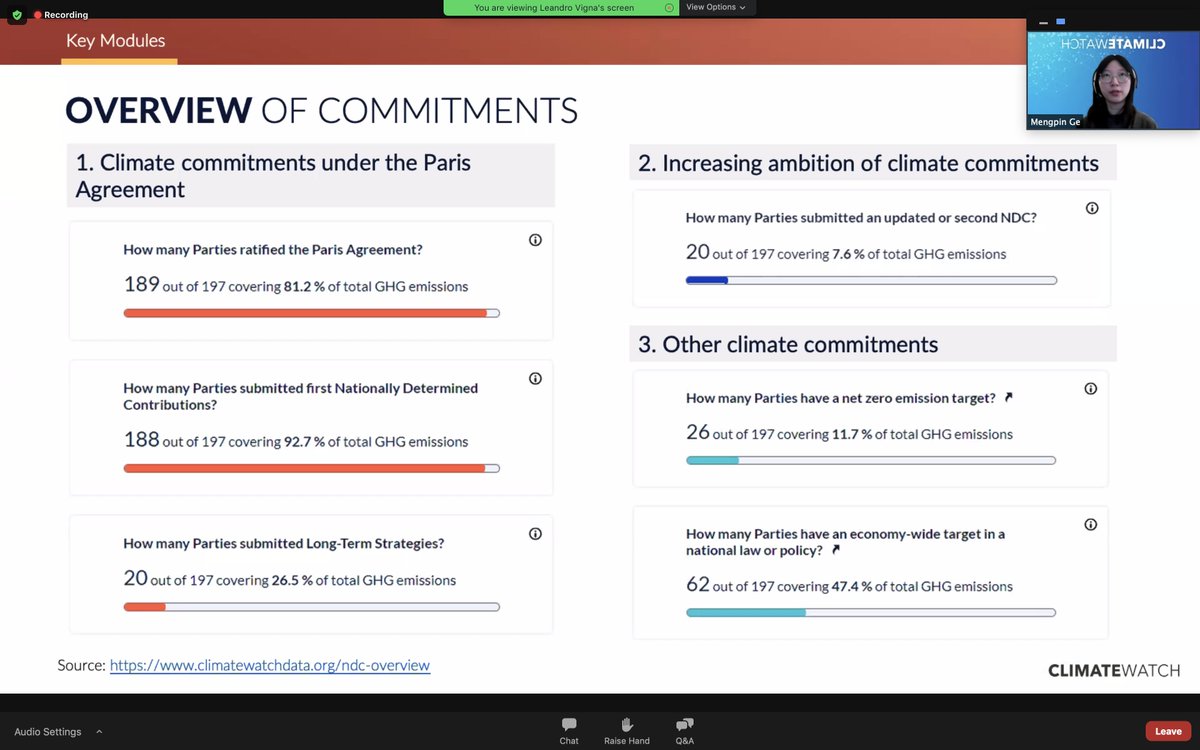
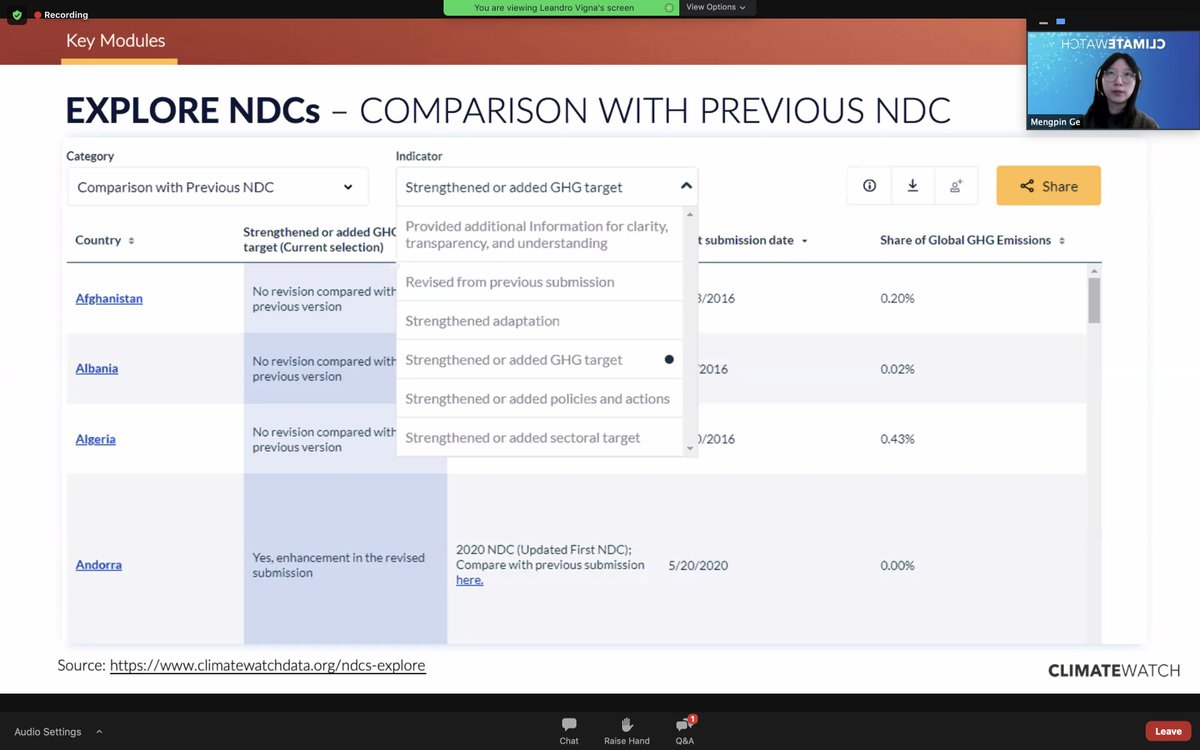
Coming soon: #NetZero tracker (see report:https://t.co/Kb5JB2VgMu).
@MengpinGe (9/n)
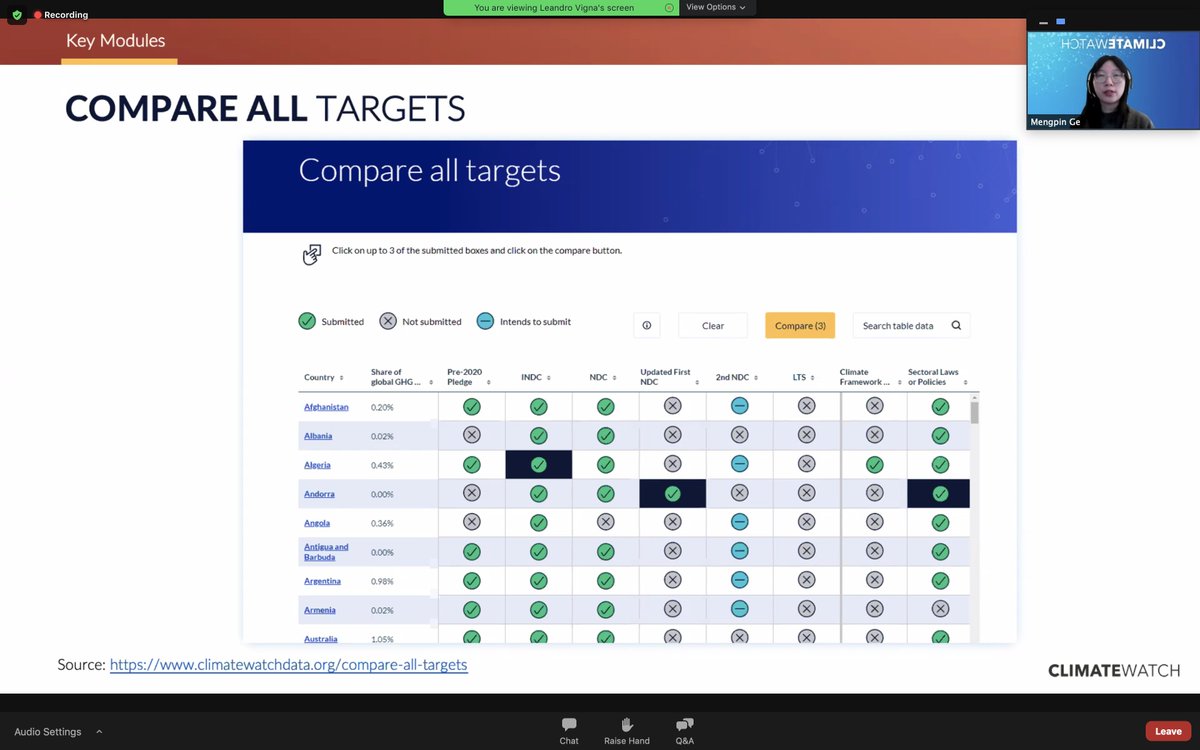
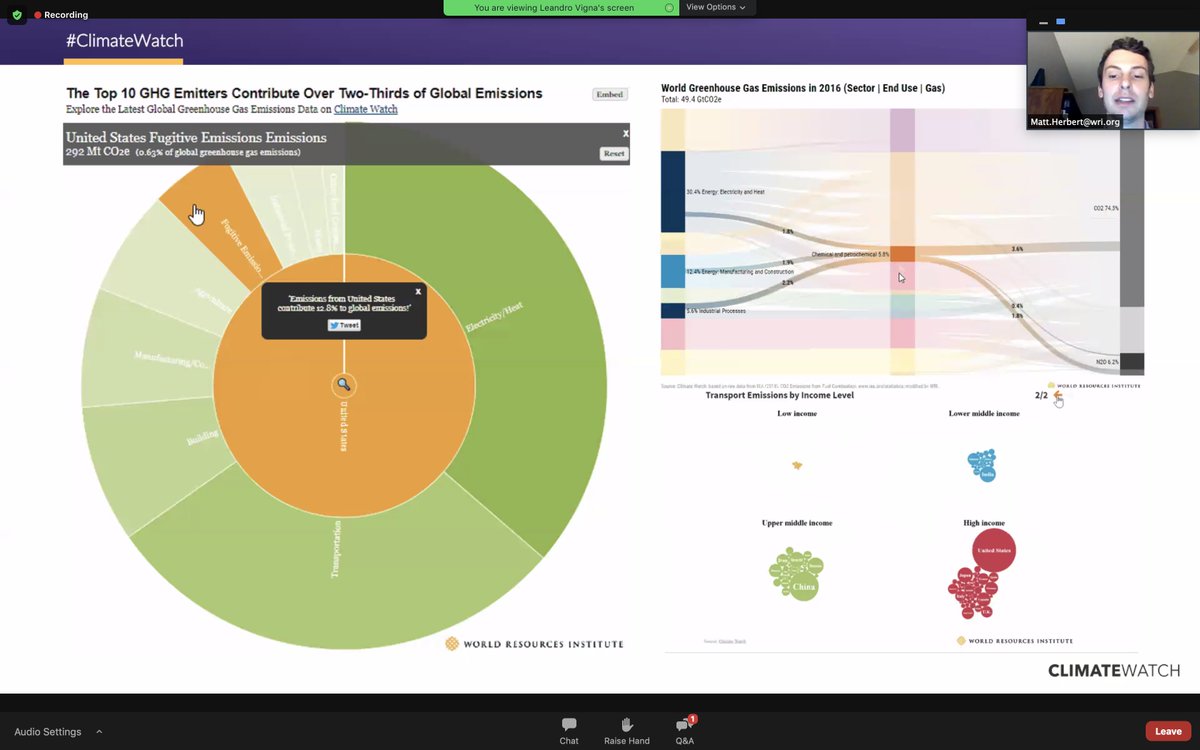
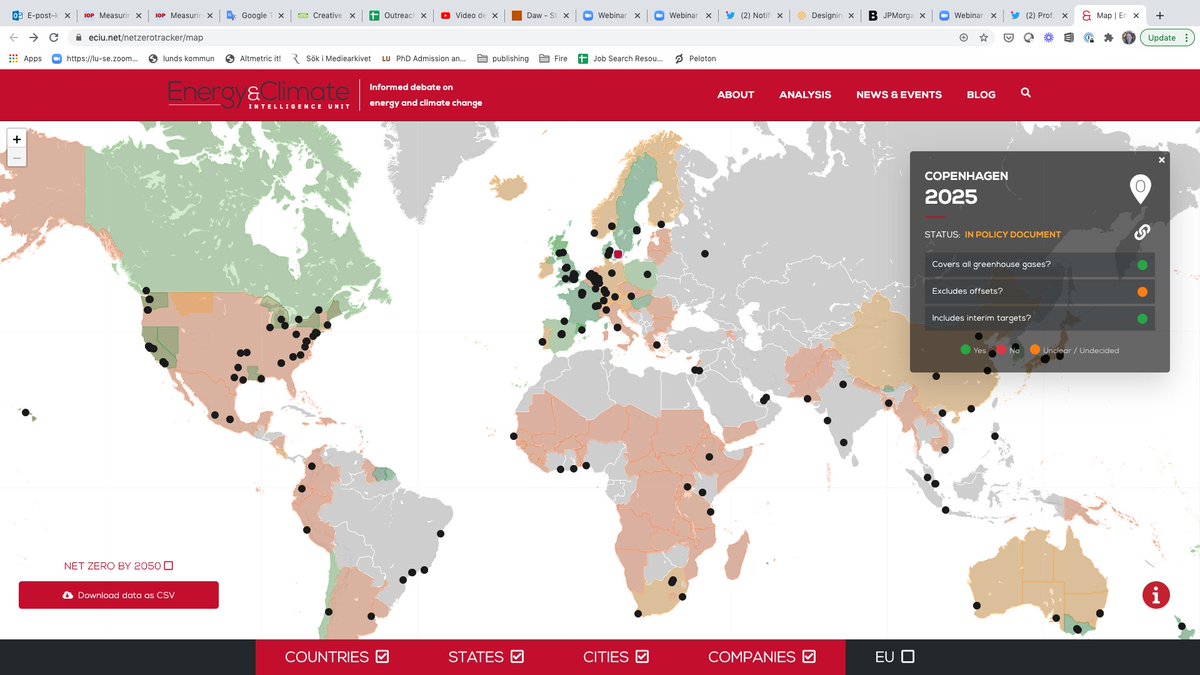
OECD 2018 found $78.9 bn/yr (78% public $), of $100 bn/yr promised in Paris, per @davidwaskow (12/12)
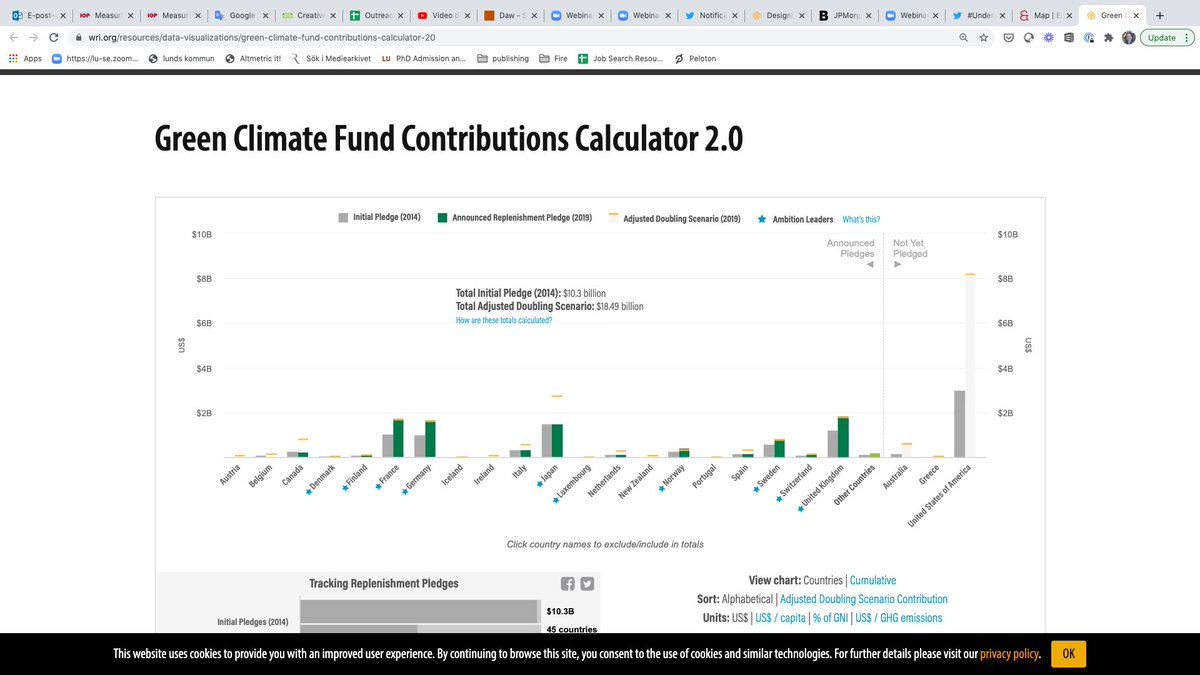
More from Economy
1/ To add a little texture to @NickHanauer's thread, it's important to recognize that there's a good reason why orthodox economists (& economic cosplayers) so vehemently oppose a $15 min wage:
The min wage is a wedge that threatens to undermine all of orthodox economic theory.
2/ Orthodox economics is grounded in two fundamental models: a systems model that describes the market as a closed equilibrium system, and a behavioral model that describes humans as rational, self-interested utility-maximizers. The modern min wage debate undermines both models.
3/ The assertion that a min wage kills jobs is so central to orthodox economics that it is often used as the textbook example of the Supply/Demand curve. Raise the cost of labor and businesses will buy less of it. It's literally Econ 101!
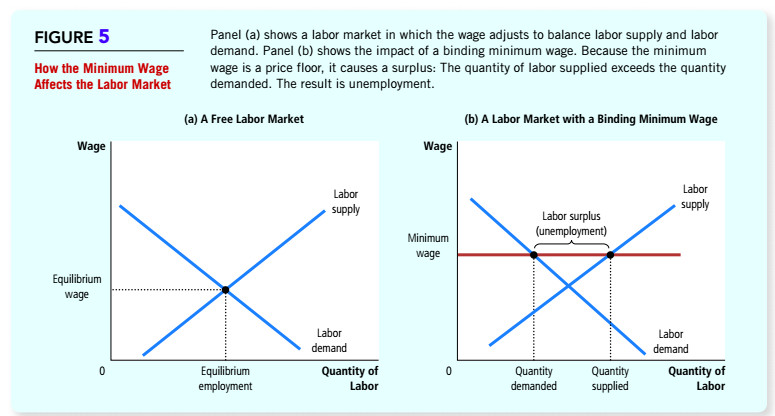
4/ Econ 101 insists that markets automatically set an efficient "equilibrium price" for labor & everything else. Mess with this price and bad things happen. Yet decades of empirical research has persuaded a majority of economists that this just isn't
5/ How can this be? Well, either the market is not a closed equilibrium system in which if you raise the price of labor employers automatically purchase less of it... OR the market is not automatically setting an efficient and fair equilibrium wage. Or maybe both. #FAIL
The min wage is a wedge that threatens to undermine all of orthodox economic theory.
1/4 Most people, especially academic economists, think that the controversy over the minimum wage is a contest over facts. It's not. It's a contest over power, status, and wealth. It is just like the contest over racial and gender justice.
— Nick Hanauer (@NickHanauer) January 17, 2021
2/ Orthodox economics is grounded in two fundamental models: a systems model that describes the market as a closed equilibrium system, and a behavioral model that describes humans as rational, self-interested utility-maximizers. The modern min wage debate undermines both models.
3/ The assertion that a min wage kills jobs is so central to orthodox economics that it is often used as the textbook example of the Supply/Demand curve. Raise the cost of labor and businesses will buy less of it. It's literally Econ 101!

4/ Econ 101 insists that markets automatically set an efficient "equilibrium price" for labor & everything else. Mess with this price and bad things happen. Yet decades of empirical research has persuaded a majority of economists that this just isn't
5/ How can this be? Well, either the market is not a closed equilibrium system in which if you raise the price of labor employers automatically purchase less of it... OR the market is not automatically setting an efficient and fair equilibrium wage. Or maybe both. #FAIL







